Viktor Shklovsky: Bowstring: On the Dissimilarity of the Similar (1970/2011) [RU, EN]
Filed under book | Tags: · literary criticism, literary theory, literature, poetry
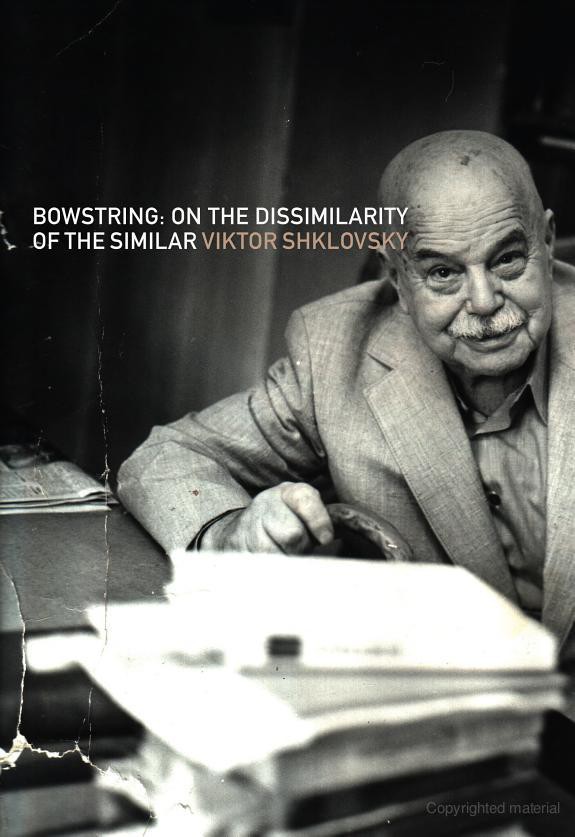
“Myths do not flow through the pipes of history,” writes Viktor Shklovsky, “they change and splinter, they contrast and refute one another. The similar turns out to be dissimilar.” Published in Moscow in 1970 and appearing in English translation for the first time, Bowstring is a seminal work, in which Shklovsky redefines estrangement (ostranenie) as a device of the literary comparatist—the “person out of place,” who has turned up in a period where he does not belong and who must search for meaning with a strained sensibility. As Shklovsky experiments with different genres, employing a technique of textual montage, he mixes autobiography, biography, memoir, history, and literary criticism in a book that boldly refutes mechanical repetition, mediocrity, and cultural parochialism in the name of art that dares to be different and innovative. Bowstring is a brilliant and provocative book that spares no one in its unapologetic project to free art from conventionality.
Тетива. О несходстве сходного
Publisher Sovetskii pisatel’, Moscow, 1970
English edition
Translated by Shushan Avagyan
Publisher Dalkey Archive Press, 2011
John F. Byrne Literature series
ISBN 1564784258, 9781564784254
456 pages
Review (Jonathan Foltz, Los Angeles Review of Books)
Review (Bruce Stone, Cinq Magazine)
Publisher (EN)
Google books (EN)
Tetiva: o neskhodstve skhodnogo (Russian, 1970, HTML), Alt link.
Bowstring: On the Dissimilarity of the Similar (English, 2011, EPUB), Alt link.
ReD (Revue Devětsilu): modern culture monthly (1927-1931) [Czech]
Filed under magazine | Tags: · architecture, art, art theory, avant-garde, bauhaus, constructivism, czechoslovakia, dada, design, film, graphic design, literature, photography, poetry, psychoanalysis, radio, surrealism, theatre
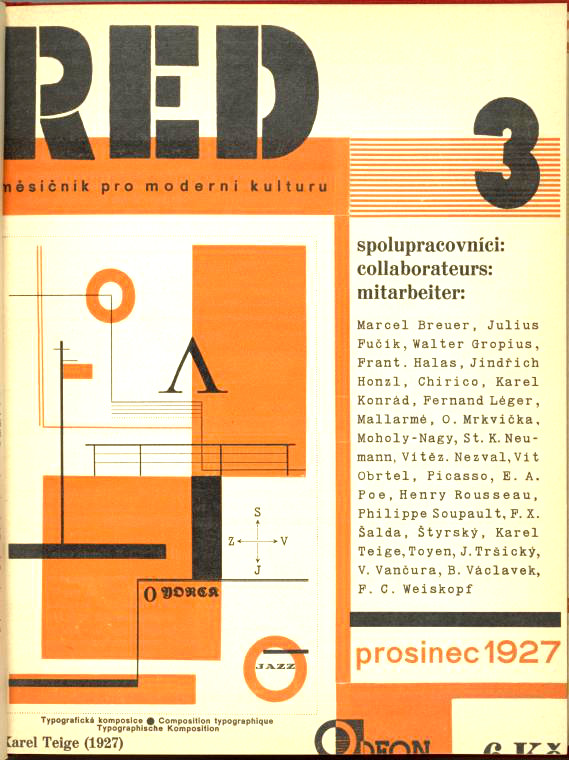
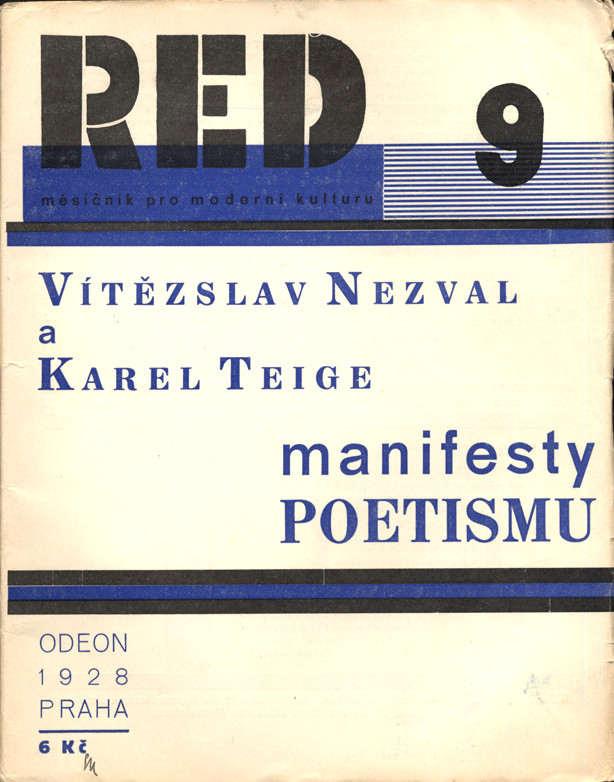
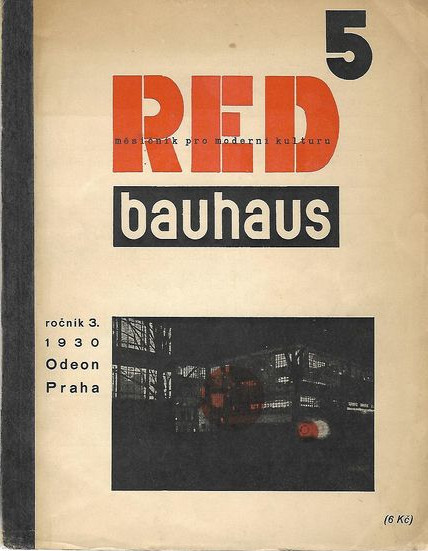
ReD (měsíčník pro moderní kulturu / Revue internationale illustrée de l’activité contemporaine / Internationale Monatsschrift für moderne Gestaltung) was an art magazine published by members of the Czech avant-garde art collective Devětsil.
Thirty numbers were published, with the special issues on the Russian avant-garde, Bauhaus, and photography/film/typography.
Several manifestos appeared in the journal: Toyen and Jindřich Štyrský’s Artificielisme (1:1, 1927), Karel Teige’s second Poetism manifesto [Manifest Poetismu] (1:9, 1928), and the Left Front [Levá fronta]’s founding manifesto (3:2, 1929).
Edited and designed by Karel Teige
Publisher Odeon – Jan Fromek, Prague
via NYPL Digital Library
Each volume in a single PDF (low resolution):
Volume I, 1927-1928 (10 issues, 360 pages)
Volume II, 1928-1929 (10 issues, 324 pages)
Volume III, 1929-1931 (10 issues, 315 pages)
Selected issues in separate PDFs:
The Russian Issue (1:2, Nov 1927)
Foto Film Typo Issue (2:8, Apr 1929)
The Bauhaus Issue (3:5, Feb 1930, partly in German)
JPG pages (search in page annotations):
View online
See also Devětsil: Revoluční sborník (1922), edited by Jaroslav Seifert and Karel Teige, in Czech.
Comment (1)Vladimir Mayakovsky, El Lissitzky: Dlia golosa (1923) [Russian]
Filed under artist publishing | Tags: · avant-garde, constructivism, graphic design, poetry, typography
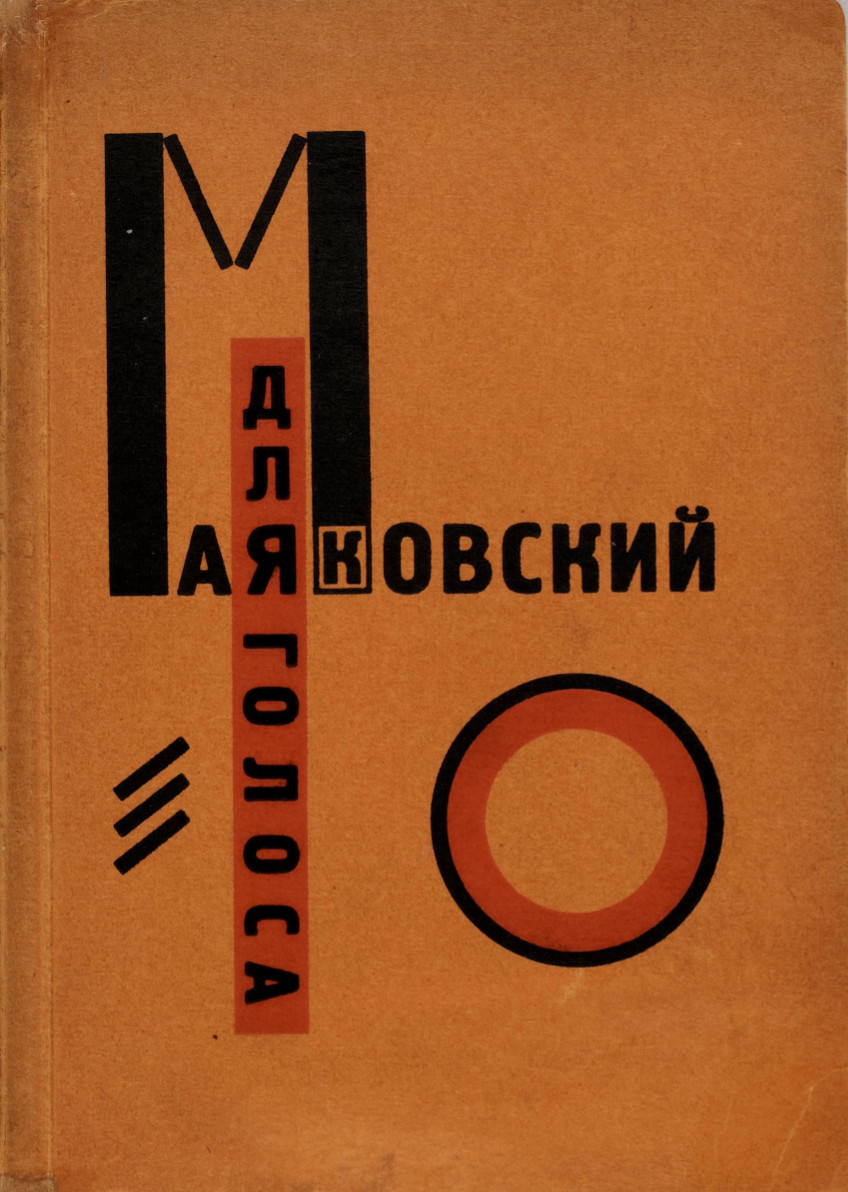
Dlia golosa [For the Voice], a collection of 13 poems by Mayakovsky, “constructed” by Lissitzky, has long been recognized as one of the finest achievements of Russian avant-garde bookmaking, a tradition in which poets and artists collaborated to create books that attained the status of art objects. By any reckoning, For the Voice is a landmark event in the history of modern graphic design. The book was inspired by the “new optics,” where ideas are given form through printed letters, turning them into pictorial signs, and by “words that are seen and not heard,” as Lissitzky wrote.
Для голоса [Dlia golosa]
Publisher R.S.F.S.R. Gosudarstvennoe Izdatel’stvo, Berlin, 1923
61 pages
via babs71
PDF (pages 14-15 are missing)
Comment (0)
